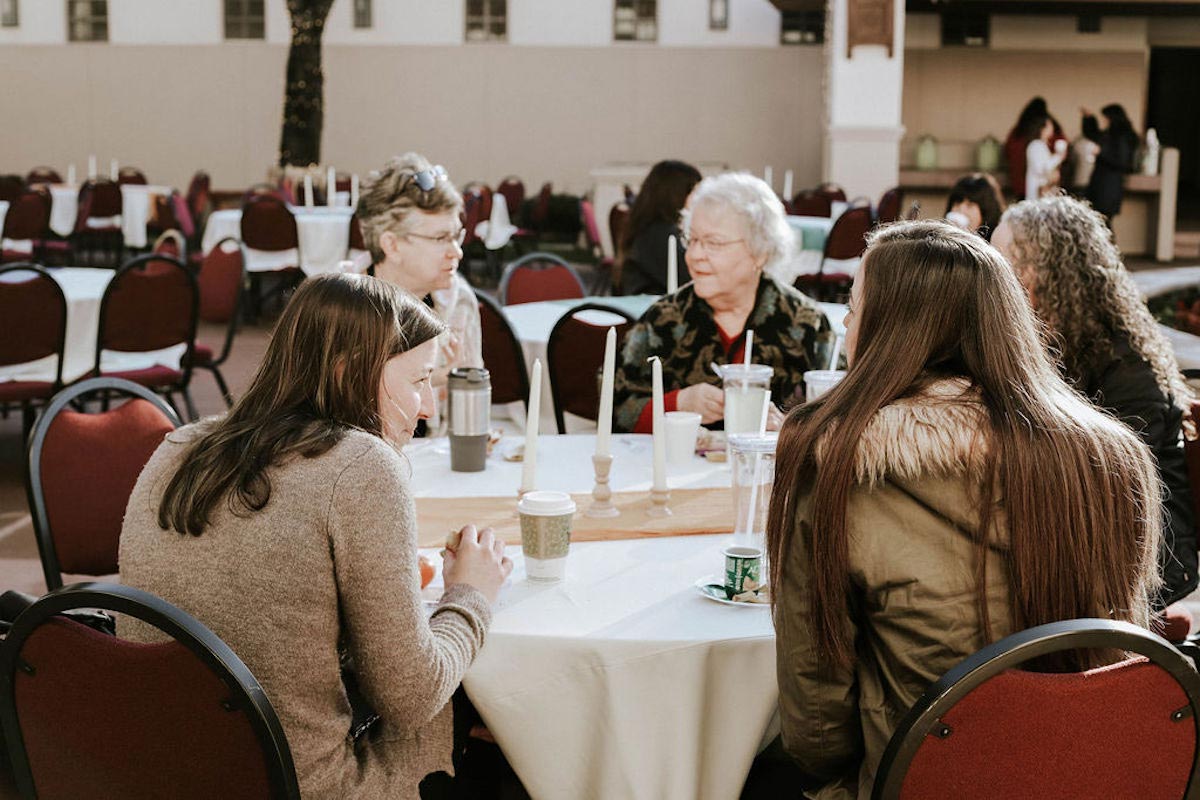
I was not raised in a Catholic home. In fact, I am the only Catholic in my whole family. I converted when I was 7 years old and I’ve been a practicing Catholic ever since.
Because of this, growing up I never had friends who shared the Catholic Faith (although I did go to a Catholic Elementary school, none of my friends were really practicing Catholics). It didn’t really bother me because I had great, solid friendships!
I joined my Church’s youth group when I was 13 and started building friendships with people who had a similar relationship with God and wanted to grow in that relationship. I really valued these friendships and they are people I am still friends with! But just because I made these new friendships with people who share the same Faith didn't mean that I dropped my other friends who were not Catholic. Some friendships I grew out of (it just happens naturally, especially when growing up), but I'd never walk away from solid friendships just because we didn't share the same Faith. That’s not true friendship and goes against the true purpose of friendship.
The True Purpose of Friendship
Look to Saint Ignatius and Saint Francis Xavier, Saint Teresa of Avila and Saint John of the Cross, Saint Francis and Saint Clare Assisi, for example. All are witnesses and attest to the true, beautiful purpose of fellowship and friendship. All of these friendships looked different because they were all unique; but at the core, all these friendships were life-giving.
The purpose of friendship is to help one another grow. Friends are supposed to push us to be the best version of ourselves—to be holy—and as a good friend, we should do the same. Encourage each other, challenge each other, love each other. And to love is to will the good of the other and to support each other in that good.
There was something I found in my Church friends that I didn’t find in my non-Catholic friends, and that was a sense of fellowship and through these friendships learned the distinction between the two.
Friendship vs. Fellowship
Simple friendships are usually fostered by common interests or circumstances like playing on the same sports team, attending the same lecture, or liking the same musician.
Fellowship within the Catholic Church is relating to someone on a spiritual level with the Catholic Faith in common! There is something beautiful about sharing theology and a love for Jesus in the Eucharist. Fellowship is a beautiful aspect of the Catholic Church that the Lord provides us with and we should use this gift whenever we can!
But I also believe that it’s good to have friendships with people who are not Catholic.

WRITE + PRAY
We invite you to sit with the Word and unpack it in a uniquely personal way, finding your own story.
Discover your story within His.
Why it's Good to have Friends Who are Not Catholic
I converted to Catholicism when I was seven, but I went to a public high school. There weren’t many practicing Catholics there, but I still made strong, close friendships that I still have today.
As Catholic Christians we are called to bring the light of Christ to everyone we meet (Matthew 5:14), especially to those who may not have a personal relationship with God. We can be lights to someone by the example of our friendship.
Perspective and Prayer
Being friends with someone who is not Catholic can also offer a different perspective on the world. I often feel that I can get trapped in a little faith bubble and I forget that a lot of the world doesn’t have a relationship with God. We are supposed to be in the world but not of the world, and by having a friend who has a different view of the world we can be in the world and walk with them and see the world from a different perspective.
Lastly, having a friend who does not share the same faith gives us the opportunity to practice defending our own Faith. I would get questions from my friends who weren't Catholic all the time about different aspects of my Faith. Some answers I knew in a heartbeat and others I had to search in the Bible, in the Catechism, or ask a priest. These situations test our faith and test our knowledge of what we believe. Just like St. Peter said, “Always be ready to make your defense to anyone who demands from you an accounting for the hope that is in you” (1 Peter 3:15).
How to Foster All Types of Friendships
Remember, friendships are supposed to be life-giving! We are supposed to help each other, push each other to be the best possible versions of each other! How can we cultivate strong and healthy friendships?
1. Invest the time.
Like any other relationship in life, you need to invest the time. Set aside the time to just be with your friend—no matter how busy you each are! My best friend and I go to college an hour away from each other, but that’s the beauty of modern technology! Pick up the phone, Facetime, send a text message, or plan to meet up on school breaks when you are near each other. You will never regret spending time with a friend.
2. Meet them where they are.
This is especially important when fostering friendships with people who are not Catholic. Put aside any “friendship expectations” you might have for the person and meet them where they are in their life, listen with an open heart and without judgement, and offer comfort and advice when and where you can. Just remember that Jesus always meets us where we are, even in the messiness of our sin. If we are going to be the light of Christ to this world and our friends, we need to emulate the same.
Friendship is a gift that God has blessed us with and we should not take it for granted. We should make it a point to be intentional and loving in these relationships. Because God loves us, we are called to love others in friendship, to will the good of each other... that is truly life-giving.
What fruits are born in your life through fellowship and friendship with non-Catholics?
Friendship + Fellowship with Non-Catholics #BISblog //Click to tweet
Written by Samantha Cameron. Find out more about her here.































